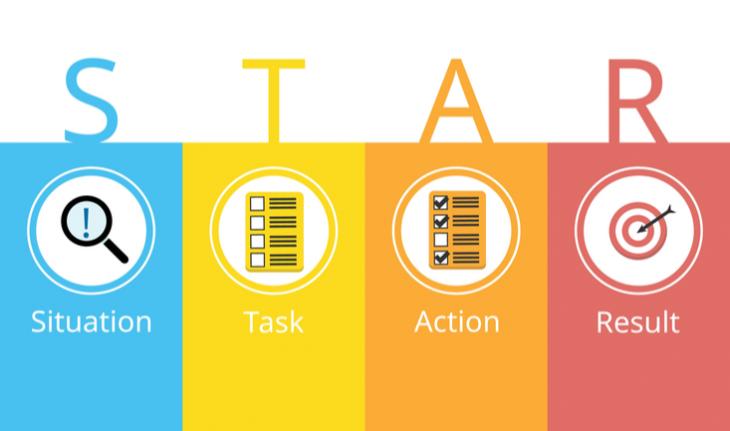“Here we start a new year, looking back is a waste of time”
“Don’t overcomplicate things! Doing an evaluation for the whole year is overrated, life is just simpler than that”
Those ideas might come to our mind when we read the article title, so we should ask this important question;
Why would we want to evaluate our previous year?
Sometimes we could get buried in our daily routine without taking a look back to evaluate and correct our path. The dangerous thing would be when we discover -at a late time- that several years have passed without making any corrections. As a result, a lot of people have great potentials and talents, but the daily routine shuts down those abilities and make them dormant until they are convinced they’ve reached their limit… and that is as higher as they can go.
Usually, the deviation begins on a small level and gets bigger and bigger, so it’s important to evaluate and correct any shifts now and then, these evaluations would wake our inner judgement and make us raise our limits again and restore control over our life.
And of course, there is no problem with the existence of these deviations, it’s one of the laws of life, but what should be done is getting them adjusted wisely with minimum losses.
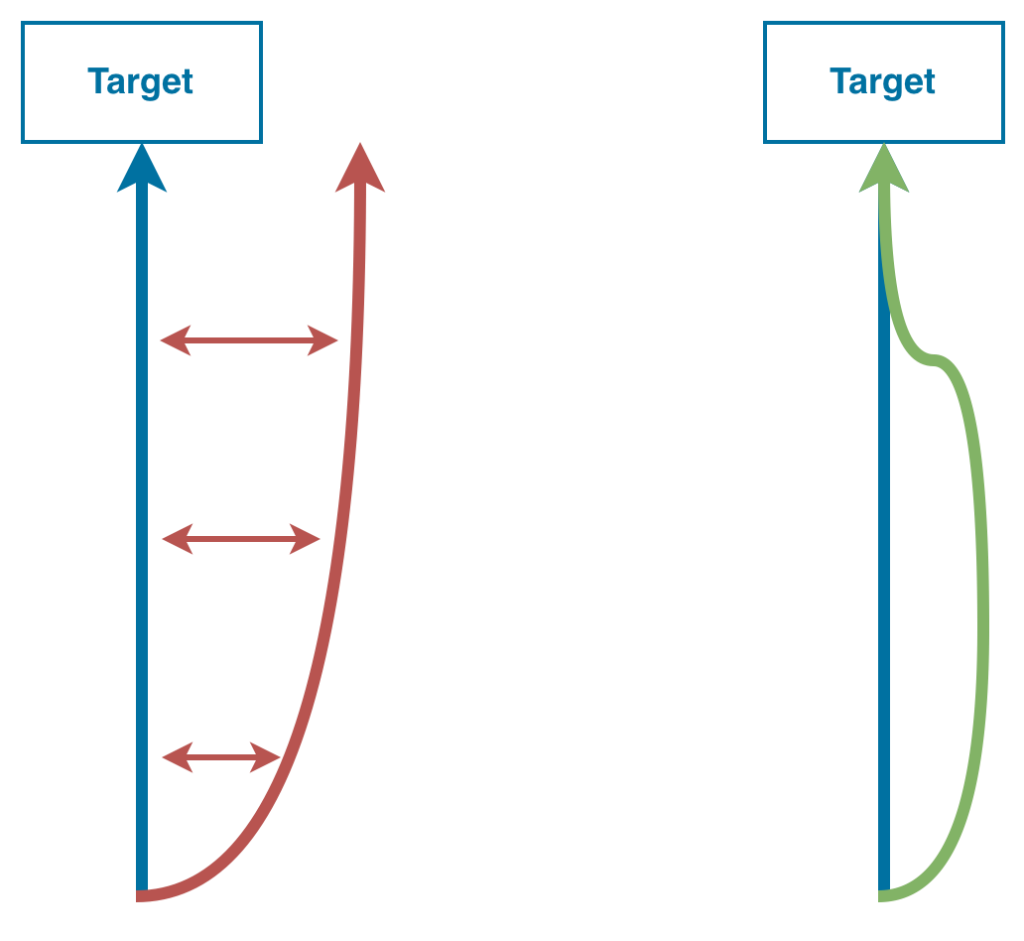
I have quoted the previous paragraph from my last article in 2020, but this year I have decided to share how I evaluate the year instead of sharing its details.
Actually, every one of us has his own gold mine, I mean “the past” of course. It’s very important to “mine” for lessons from the past and reuse them again to plan the future.
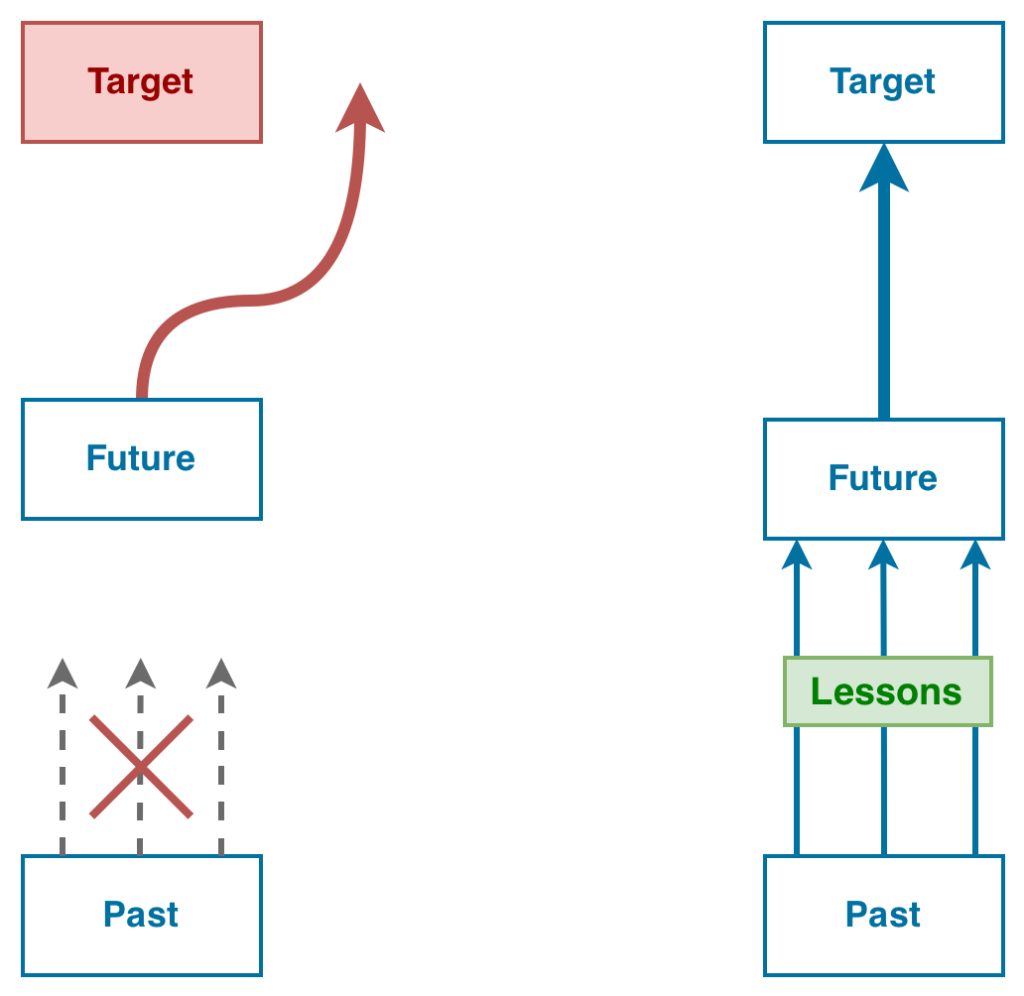
It’s wise to consider the past and future as one part, having a sustainable connection between them by continuously evaluating the past and taking benefit from lessons learned while planning the future could dramatically increase our efficiency, which in turn will protect us from having plan shifts and being dormant due to the daily routine.
If you agree with me about the importance of this step for us, let’s move to the next question;
How can we sort up year events to be evaluated?
Well, this step is mostly personal, I mean by that every one of us has a way to list year events, all that matters is to use or create your own way which seems practical and effective to you.
I’ll share my way with you, hopefully, it will spark some ideas in your mind. Maybe you already have a way you might want to share with me so I can get the spark too.
Listing all year events in one place is very beneficial because we can see and understand some things we wouldn’t have seen unless it’s presented to us in a systematic and organised way, because of that, I have chosen the STAR approach for this purpose.
STAR approach is usually composed of 4 parts (Situation, Task, Action, Result), which describes an event or a job we have been involved in by stating; the situation before our involvement, the task we have decided to do, the steps of the action we have done, and finally the results.
I have decided to add two more points to this approach, but to differentiate it from the original approach, I have given it the name “Improved STAR”:
- Situation: what is the situation before the start.
- Task: what is the work we’ve done because of the previous situation.
- Actions: what are the practical steps we’ve implemented to fulfil the task.
- Results: what are the results gained from these actions.
- Mistakes: what are the negative points that happened during the actions.
- Intention: what is the true intention behind this work or job, it might be deeply personal benefit, or friends benefit, or it might be related to noble objectives which exceeds the boundaries of this life. I think stating this point and write it down is very important.
I have put those points in a table so they look clear visually and are ready for the next step later.
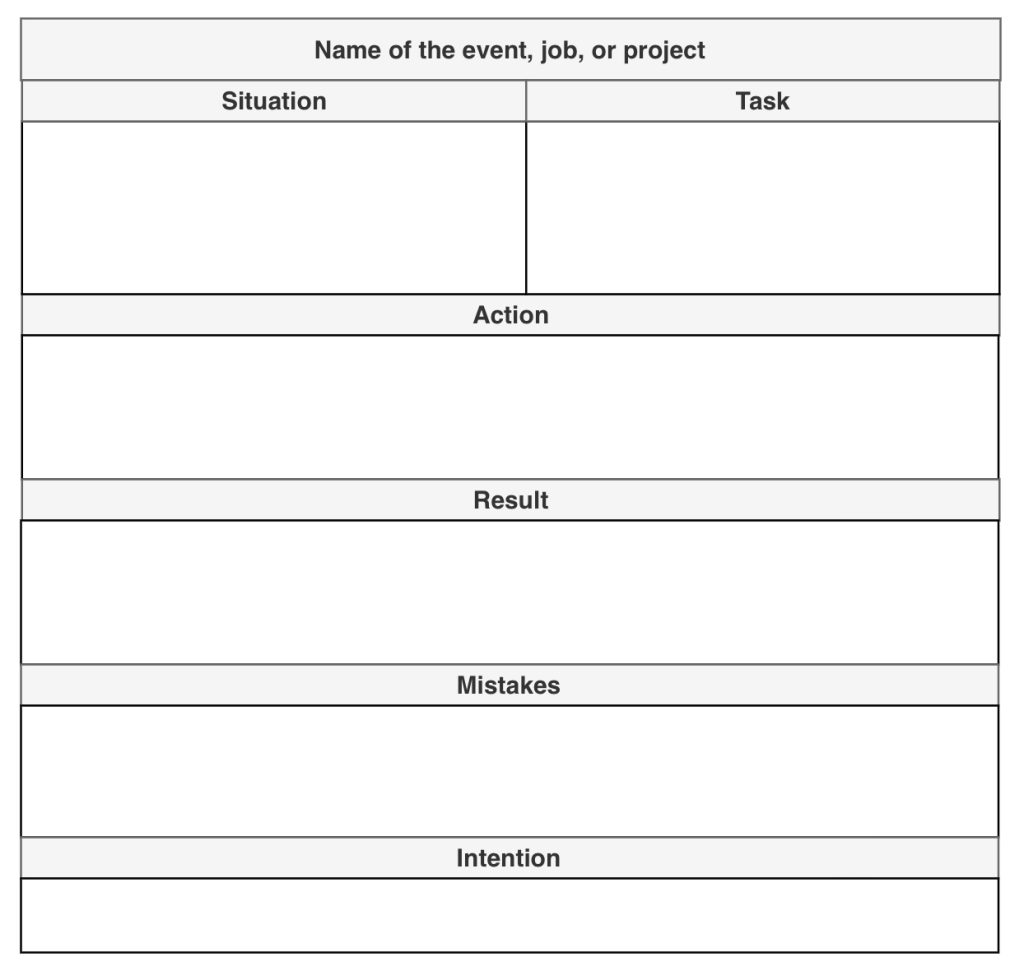
This table could be related to a project, personal activity, hobby, volunteering activity, job in a company, also studying in some field (i.e. the study year could be considered as an event which has a situation, task, actions and mistakes).
We can also add multiple tables in one year, where any table is tied with one event only.
What about previous years, or events that took more the one year?
After I finished listing my events in one year, I discovered some of them took two years or more, so I wanted to expand this idea further and include multiple years, which gives more ability in evaluating and learning, also opens the possibility to make this process incremental throughout our life.
I have added start & finish dates as shown in the next picture:
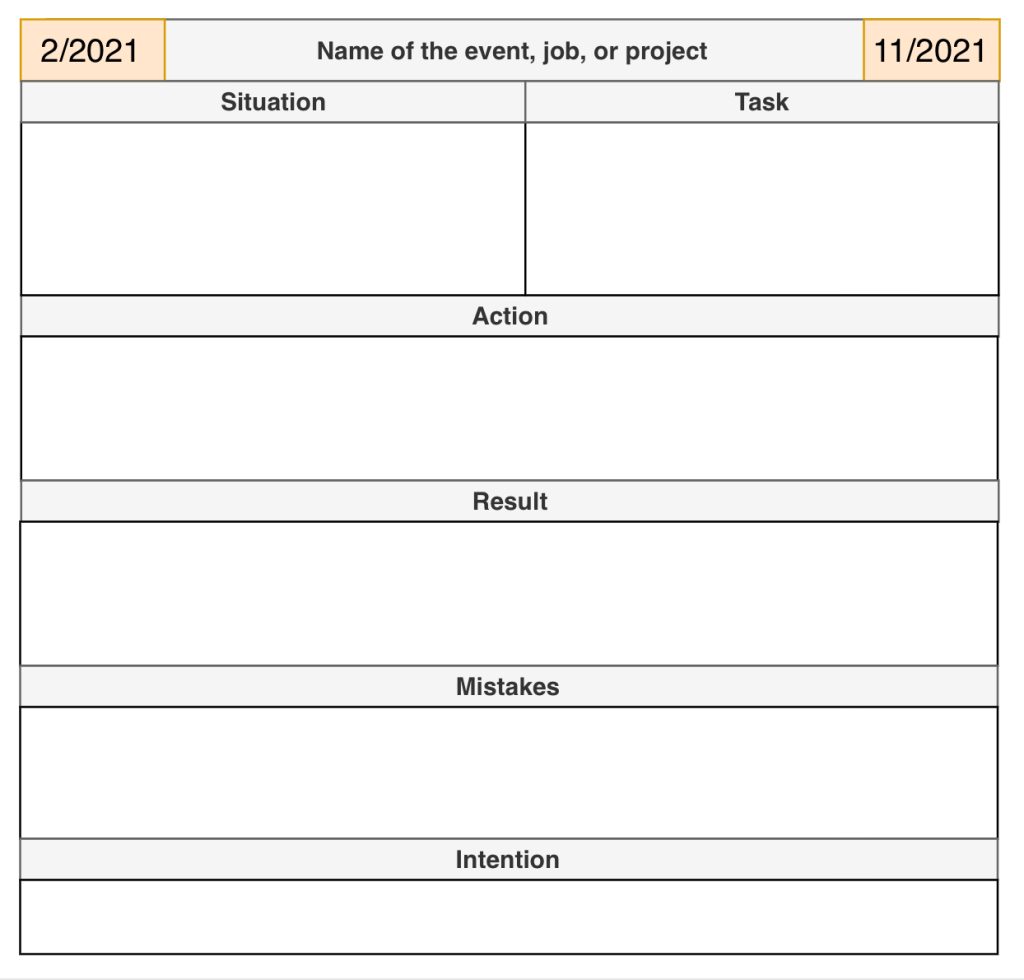
In the end, we can use this table in a timeline containing all the years we want:
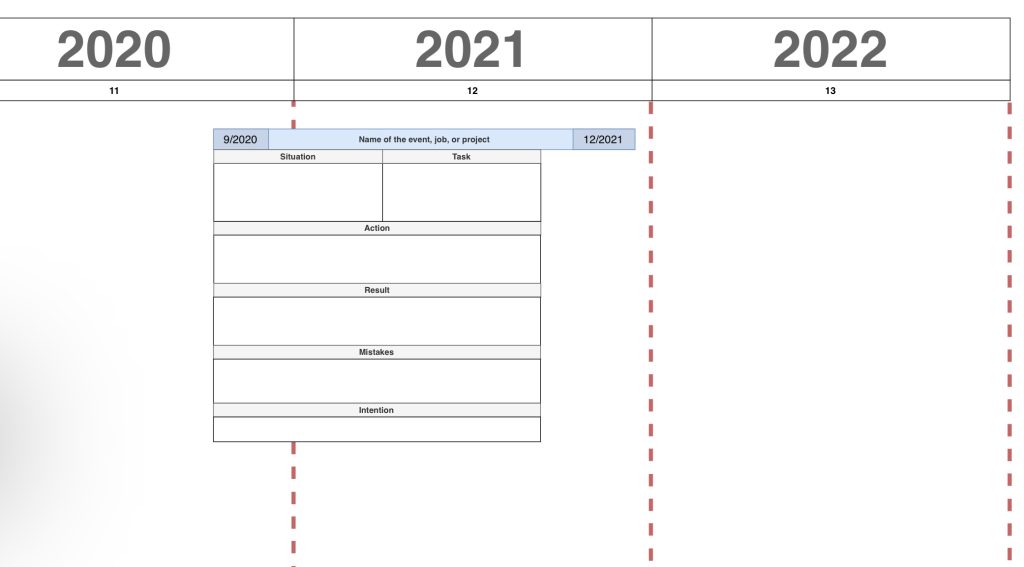
The beauty of this way is that it allows us to add unlimited events to our timeline. We can expand horizontally through the years, and vertically through the events.
Here is a picture showing this concept:
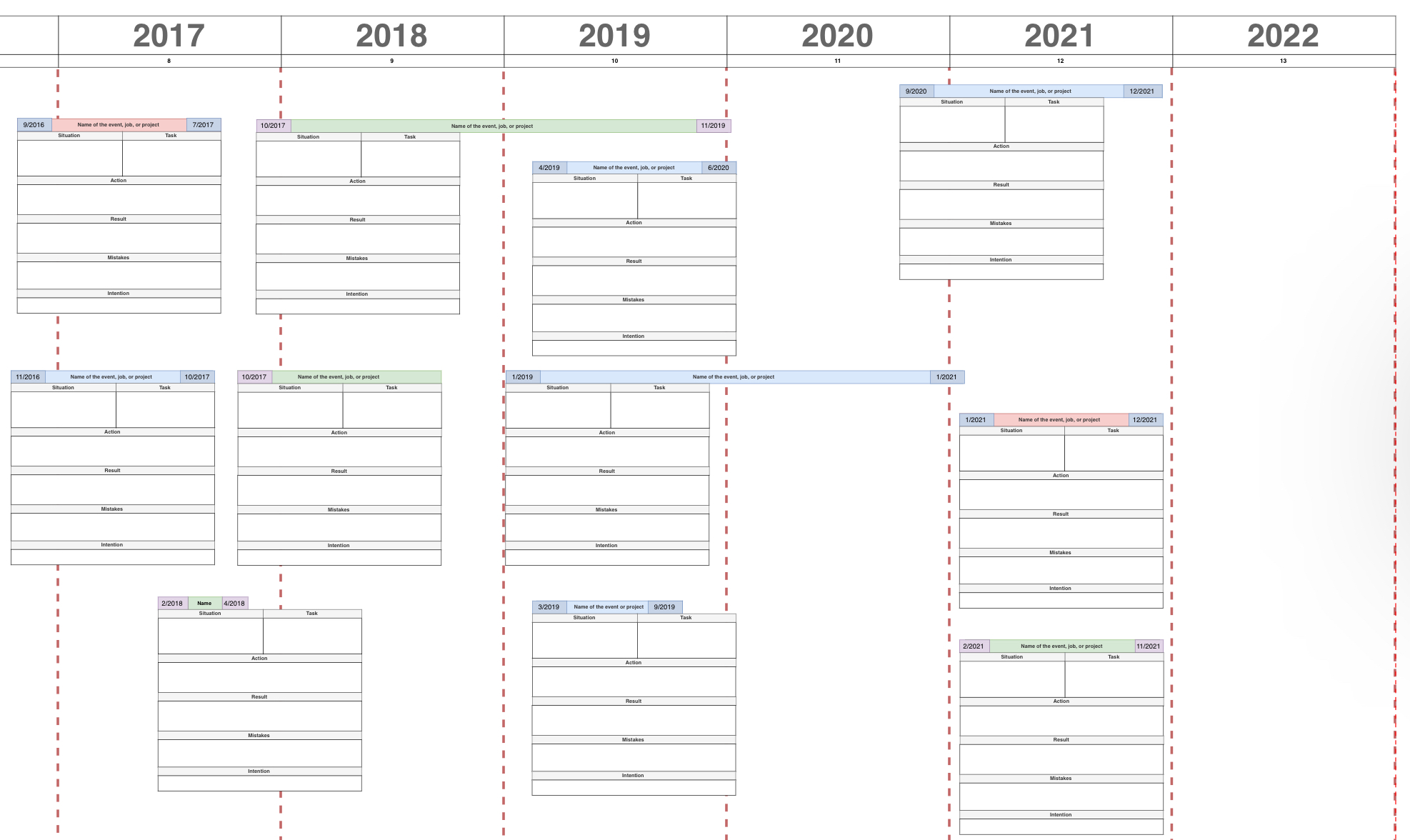
We also might add more ideas:
- It’s possible to colour table headings to categorise the events, i.e. red for work, green for intellectual and volunteering events, blue for study and self development… (we will use this idea in the evaluating stage).
- It’s possible to add more fields to the table, or take out any of them.
- Also, we can use computer (As I did) or even paper.
In order to make the start easier on you, here I attach the template I have been working on using a free and opensource app called Draw.io (Thanks to Beetronix team for introducing this app to me):
Make your decision to start now with your prefered way!
To the important step: The evaluation
I remember how I was surprised the first time I finished working on this step; I discovered mistakes I had made and repeated throughout the years without knowing that.
After filling the timeline, you will have -literally- endless possibilities to study those years and learn from them. Here are some suggestions you might consider:
- The link between events and personal objectives:
When you view the timeline from a wide perspective, try to make sure from strength of the links between events (tables) you have. In case you saw many tables with no common objective, it may be an alarming problem that should be addressed quickly.
Try to form a plan by clearly linking the tables from the previuos year with your plan for the upcoming year. - Event categories diversity:
If your timeline consists of only one type of tables (one colour), this could be a bad indication if it goes for some time. You sould try to make some kind of balance between life events (work, study, intellectual developement, skill development, volunteering… etc). - Error repeating average:
Collect all the mistakes from the tables you have, try to discover how many of them are the same. You will find some of them repeated -and that’s Ok- but you should at least know about those repeating mistakes and have an expectation how to reduce them in the future. - Intentions:
Generally speaking, during the events, it’s possible that we didn’t specify our intentions at all, or we might have chosen wrong ones. According to what I know, we should continuely work on our selfs until the intentions in all of our tables are unified. After all, chosing no intentions or randomly chosing ones is a wrong thing and could have a negative effect on our afterlife. - Impact level:
Some of the events have an impact on people around us, some of them have an impact only on our selfs. Try to recognise the difference, and mark which one of them is more important to you in giving time, then link that with your future plans.
Of course, there is no problem having both of them, but having only one of them could prove to be a negative indication on the long run. - What other ideas you have? I’m very interested in hearing your experiences and thoughts.
Here I am finished with telling my side of the story, now it’s your turn to start yours and shape your own way, which is definitely will be unique.
You might think working on this idea is going to take a considerable amount of time, and you are right, but it’s a personal investment and well worth it. You can always make shortcuts to help yourself start, and then expand the idea gradually in the long run.
My advice is to start with the simplest way, and only focus on events that matter to you. At a later time, you can go back and dig a little deeper when you have the time.
I have truly enjoyed writing this article, I hope it has sparked an idea in your head leading you to achieve your targets in life.
I highly appreciate your interest and reading till here. And remember, there is no limit!
Wish you all the best.

